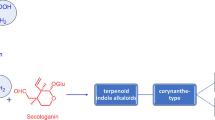Abstract
Purpose: During our search for new microtubule effectors as anticancer agents, we have found that a small synthetic molecule designated GS-164 interferes with the assembly of porcine microtubule proteins and has cytotoxic activity against a wide range of human tumor cell lines. In this study, we investigated mode of action of the compound in comparison with Taxol and colcemid. Methods: To gain an insight into the mode of action of GS-164, we used an in vitro microtubule polymerization assay and a flow-cytometric measurement technique. Microtubule organization and the level of tubulin polymerization in HeLa cells were also examined by immunofluorescence microscopy and cytoskeletal protein analyses, respectively. Results: GS-164 stimulated assembly of microtubule proteins in vitro in a concentration-dependent and a GTP-independent manner. Furthermore, as with Taxol, the microtubule polymerization induced by GS-164 was antagonized by podophyllotoxin, a tubulin polymerization inhibitor, and microtubules formed by GS-164 were resistant to disassembly by calcium or low temperatures. GS-164 in the micromolar range arrested the cell cycle of HeLa cells in the mitotic phase leading to cell death. GS-164 also increased the amounts of cellular microtubules in HeLa cells, resulting in the formation of microtubule bundles. Conclusion: These results indicate that GS-164 stimulates microtubule assembly by a similar mechanism to that of Taxol. A comparative conformational analysis of GS-164 and Taxol suggested that the structure of the former mimics the minimum essential sites of Taxol required to exert the Taxol-like activities described above. Although the cytotoxicity of GS-164 against human tumor cells was 1000-fold lower than that of Taxol and GS-164 was one-tenth as active as Taxol in vitro, these findings pave the way for synthesizing clinically useful anticancer agents using GS-164 as a lead compound.
Similar content being viewed by others
Author information
Authors and Affiliations
Additional information
Received: 20 September 1996 / Accepted: 5 March 1997
Rights and permissions
About this article
Cite this article
Shintani, Y., Tanaka, T. & Nozaki, Y. GS-164, a small synthetic compound, stimulates tubulin polymerization by a similar mechanism to that of Taxol. Cancer Chemother Pharmacol 40, 513–520 (1997). https://doi.org/10.1007/s002800050695
Issue Date:
DOI: https://doi.org/10.1007/s002800050695



